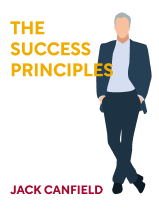

This article is an excerpt from the Shortform book guide to "The Success Principles" by Jack Canfield. Shortform has the world's best summaries and analyses of books you should be reading.
Like this article? Sign up for a free trial here .
Do you consider yourself a lifelong learner? Do you always look for opportunities to learn new skills and add to your knowledge repository? How can being a lifelong learner propel you further on your quest to success?
Having achieved a certain level of success, many people become complacent; they stop learning and developing themselves further. Yet being a lifelong learner is key to adapting to changing times, and generally, living a life full of wonder and curiosity.
There are four strategies to adopt the lifelong learner mentality.
The Importance of Lifelong Learning
Just like developing new habits, being a lifelong learner is key to being successful. There are four strategies to learn more:
1. Watch less TV; read more. The average person in the U.S. watches six hours of TV a day. Eliminating one hour of TV a week would help you make time for other pursuits, such as learning a language, spending more time with family, or reading. Reading is one of the most beneficial activities because it allows you to learn from people who have already achieved great things.
If you’re hoping to become an expert in your field, reading for an hour each day on related topics can greatly accelerate the pace of your learning. If you read a book a week, you’ll have read over 1,000 books in 20 years, putting you in the top 1 percent of people in your field.
2. Listen to inspirational audio programs. Listening to inspirational audio programs allows you to learn from experts. People spend an average of 30 minutes commuting each way, which adds up to 1,250 hours in five years. Filling that time listening to the wisdom of experts allows you to learn and adjust accordingly. Visit JackCanfield.com to access Canfield’s audio programs on a variety of topics.
3. Attend success rallies and conferences. Success rallies and conferences are events with speakers, coaches, and other professionals who can provide guidance and inspiration that’ll help you become successful. Similarly, you can find telesummits—recordings of conferences—online that feature between eight and 24 speakers. Type “telesummit” into your web browser to access them.
4. Train your team. To ensure that you’re constantly moving forward as a company, everyone needs to be learning how to advance themselves and their work. Here are two ways to train your team:
- Let employees attend training or hire trainers to lead private sessions for your company. Do a mix of professional development and personal development training.
- Create a library of resources employees can use, like books, DVDs or CDs.
5. Visit this book’s resources page for additional information, including:
- Suggested courses to learn to read faster
- Canfield’s curated list of books that discuss keys to success. Topics include nutrition, quantum physics, and psychology.
- Recommended training and organizations that provide training for companies and individuals

———End of Preview———
Like what you just read? Read the rest of the world's best book summary and analysis of Jack Canfield's "The Success Principles" at Shortform .
Here's what you'll find in our full The Success Principles summary :
- The 67 principles to help anyone achieve their goals and dreams
- Why achieving your goals requires you to invest your time and effort
- How to take responsibility for your own life






